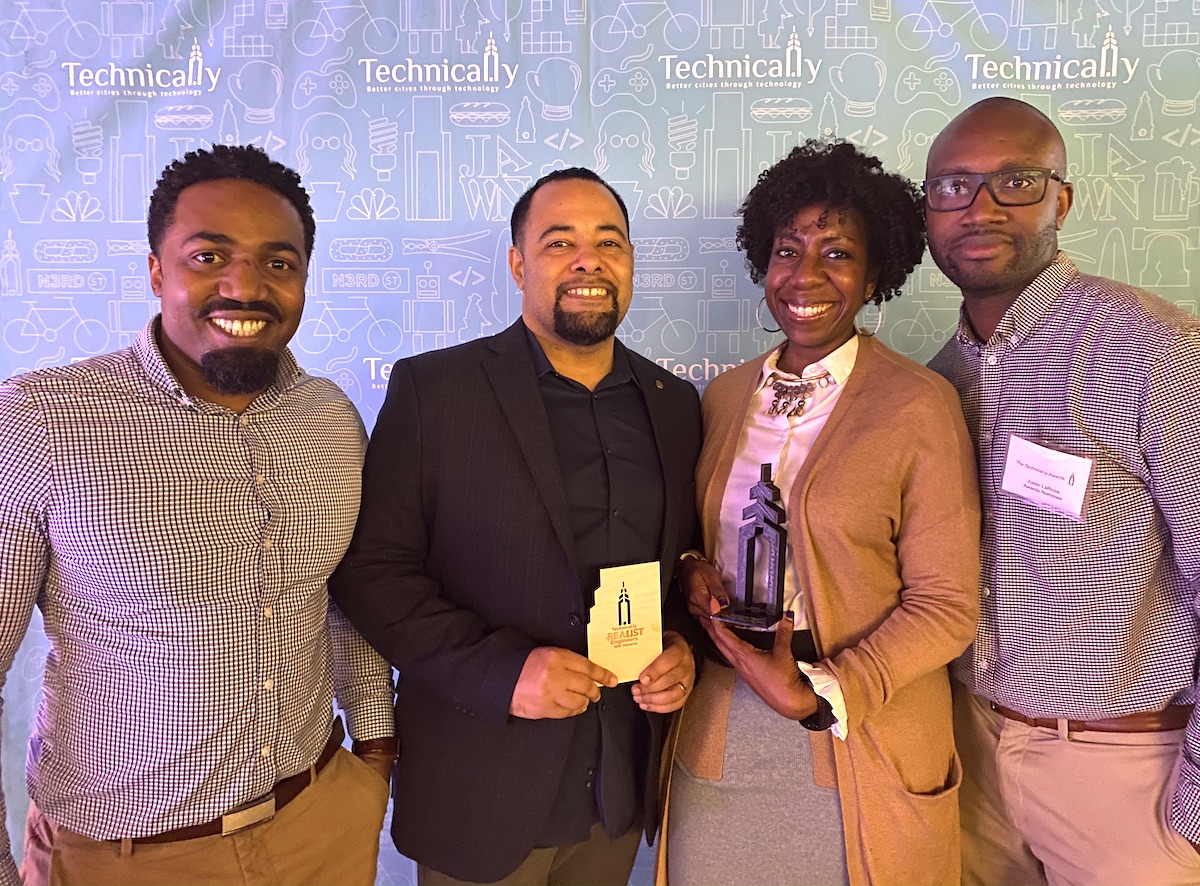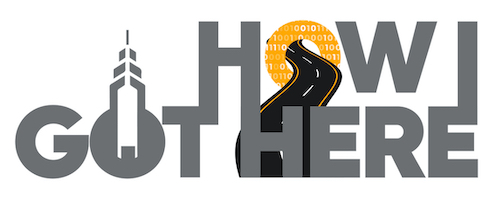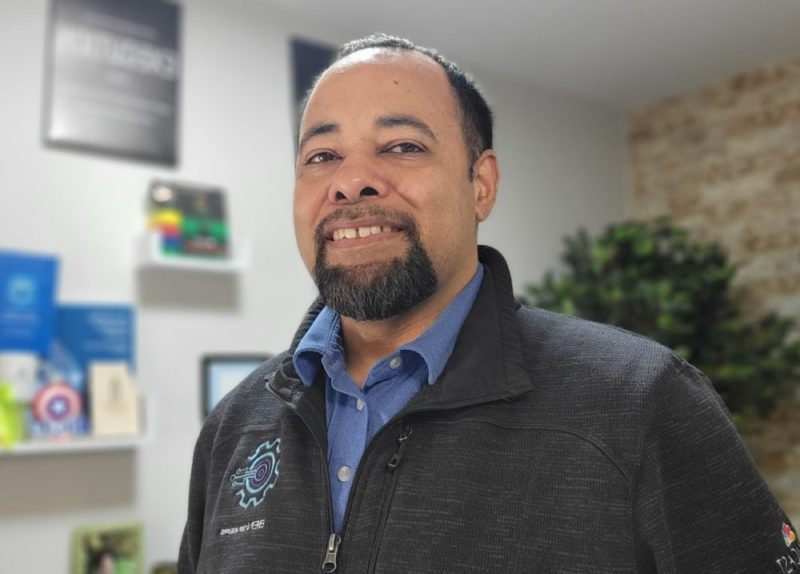Michael Winslow, an engineering leader, speaker and author, acknowledged this when we spoke the week after he left his tenure at Comcast.
He came to the company from Oracle in 2013, first in a contracting role as a scrum master and lead software developer on the X1 platform manager project that helped engineers and frontline Comcast workers to get the info they needed about accounts quicker. When a new project presented itself, Winslow made a bid for a full-time role. Over the next several years, he moved around between teams and projects with the mindset of keeping his skills sharp.
As he began speaking at tech conferences, Winslow said he noticed a lack of Black technologists onstage and in panels. He circled back to a group called the BENgineers, a Black employee resource group for engineers at Comcast, wanting to get involved. He began work on a series called Technically Speaking, training Black technologists about the conferences and speaking engagements — work he now cites as being an incredibly impactful part of his time with the company.
Winslow recently left Comcast and is heading to another large tech company: He’s now the director of engineering for Amazon Music, combining his love for tech and music (especially DJing). Before that public announcement, he sat down to talk about his career progression with Technical.ly. This interview has been lightly edited for length and clarity.
###
Technical.ly: Tell me about life as a contractor. Had you done it previous to Comcast? And how did it compare to full-time work?
Michael Winslow: Previous to Oracle, ever since I graduated college, I was doing contract work. I’m going to tell you as a contractor, you can never let your skills lapse. You were only as good as the next contract you were capable of landing. And so, whether it was true or not, you always felt like, ‘If I don’t keep up to date then they’re going to cut me and and I’ll be gone.’ I left most of my contracting gigs after about two and a half years because I felt maybe I was getting stale.
How did you move into full time work with Comcast?
Even when I was a contractor, I acted like an employee — somebody who’s really invested in the company. And around that time, I really started getting into making a name for myself in the DevOps arena. And so interestingly enough in 2016, there was this super secret project called Modesto at the time that they weren’t putting job descriptions out for. Word got around and they said, ‘Hey we need somebody in DevOps, are you interested?’ I said yes, and that project became Xfinity Mobile.
And when that project was done, did you go looking for anther one within Comcast?
My biggest accomplishments at Comcast was probably launching Xfinity Mobile in 2017. I stayed there on that team in until pretty much the late- or mid-2018. And the reason why I decided to look elsewhere [on a different Comcast team] is because we were doing annual planning, and next year looked exactly like last year. So that’s that’s usually my idea — when that scene when that becomes routine, I usually like to look and try to tackle a new problem.
Being at a tech company for 10 years just isn’t common anymore. How do you think you did that, and why do you think it’s less common these days?
There’s a couple of reasons. It’s a sellers’ market right now, or an employees’ market. We as individual contributors and as employees quite often have a choice to go to another place, you know. The mentality in our industry has been, ‘I don’t have to stay and put up with this,’ if you think you’re being slighted.
I always kind of introspect first: I look at my options and then I will push my leaders to give me very definite answers so I can figure out, ‘Is it that I’m not ready or is it that you’re not ready for me?’ I need those answers in order to make my decision on what to do next. So why a decade with one company? Because when I asked those questions, I got honest answers. And eventually I would put a bow on what I’ve done here, make it so that’s easily handed off to someone else.

Members of Comcast’s BENgineers at the 2019 Technical.ly Awards. Michael Winslow is at center, in black. (Photo courtesy of Comcast)
Tell me about getting involved with the BENgineers.
In 2016, maybe early 2017, our CTO for Xfinity Mobile put me in touch with the leaders of the BENgineers at the time. I was just overwhelmed with work, sort of too busy for it. I understood that it was important, but I just had no time for it. I planned to circle back at some point. Around 2018 when I really started getting into conference speaking, and I noticed how few Black technologies there were speaking on stages at external conferences. And that was something that I saw as a problem.
When I spoke to conference organizers, they would say, ‘Well, we don’t get a lot of Black engineers actually filling out the call for presentations.’ And I said, ‘I wonder if I could go back to those BENgineers and run some kind of workshop to teach them.’ That was the beginning of what we call Technically Speaking workshop, and that was really the thing that mixed us together. It was a shared problem that we were trying to solve.
About two years ago, a new colleague took over, Karolyn Maynard. And she just changed everything as far as a lot of these folks that were sitting on the sidelines not taking advantage of what the BENgineers could offer, or not leaning in and engaging on. I don’t know if I can explain what she brought to the table, but she continues to be magic when it comes to that.
[Editor’s note: Read more about Maynard’s work in her RealLIST Engineers 2022 feature.]
So after a decade of work, you’ve decided to leave. Why?
As I really started getting into going out and speaking on technical topics, one of the things that I wanted to do was try to get into a conferences with something that was a little bit different than what people were hearing all the time. So I decided to dig back into this project I had in the past where I wrote a digital DJ, a software called DJ Boo. I had done a talk called “There are no side projects.” I talk about all the things I learned being a DJ that I actually brought over into my day job.
I always say that I never wanted anybody to know that I was a DJ at my day job because I didn’t feel like that was like a professional thing, especially in the 2000s. But I would communicate with people who would say to me, ‘Well why do you still feel like you need to not mix that love, because now there are tech jobs in music?’ And so that probably was the first thing that kind of sparked my interest to say, ‘I wonder if I can go to one of these tech companies that are doing things [in] music.’ Then I started entertaining conversations about those things.
What was the longest you’d previously spent at any company? Do you think it’s possible to stay so long at smaller companies?
Five years. And for me, I don’t think it would have been possible. At Comcast I was fulfilled. My need to work on new and interesting problems without actually leaving the company was possible. And the growth that Comcast allowed me to have while I was during my time there qualified me for my next position.

This editorial article is a part of How I Got Here Month of Technical.ly's editorial calendar.
Before you go...
Please consider supporting Technical.ly to keep our independent journalism strong. Unlike most business-focused media outlets, we don’t have a paywall. Instead, we count on your personal and organizational support.
Join our growing Slack community
Join 5,000 tech professionals and entrepreneurs in our community Slack today!

The person charged in the UnitedHealthcare CEO shooting had a ton of tech connections

From rejection to innovation: How I built a tool to beat AI hiring algorithms at their own game

Where are the country’s most vibrant tech and startup communities?


